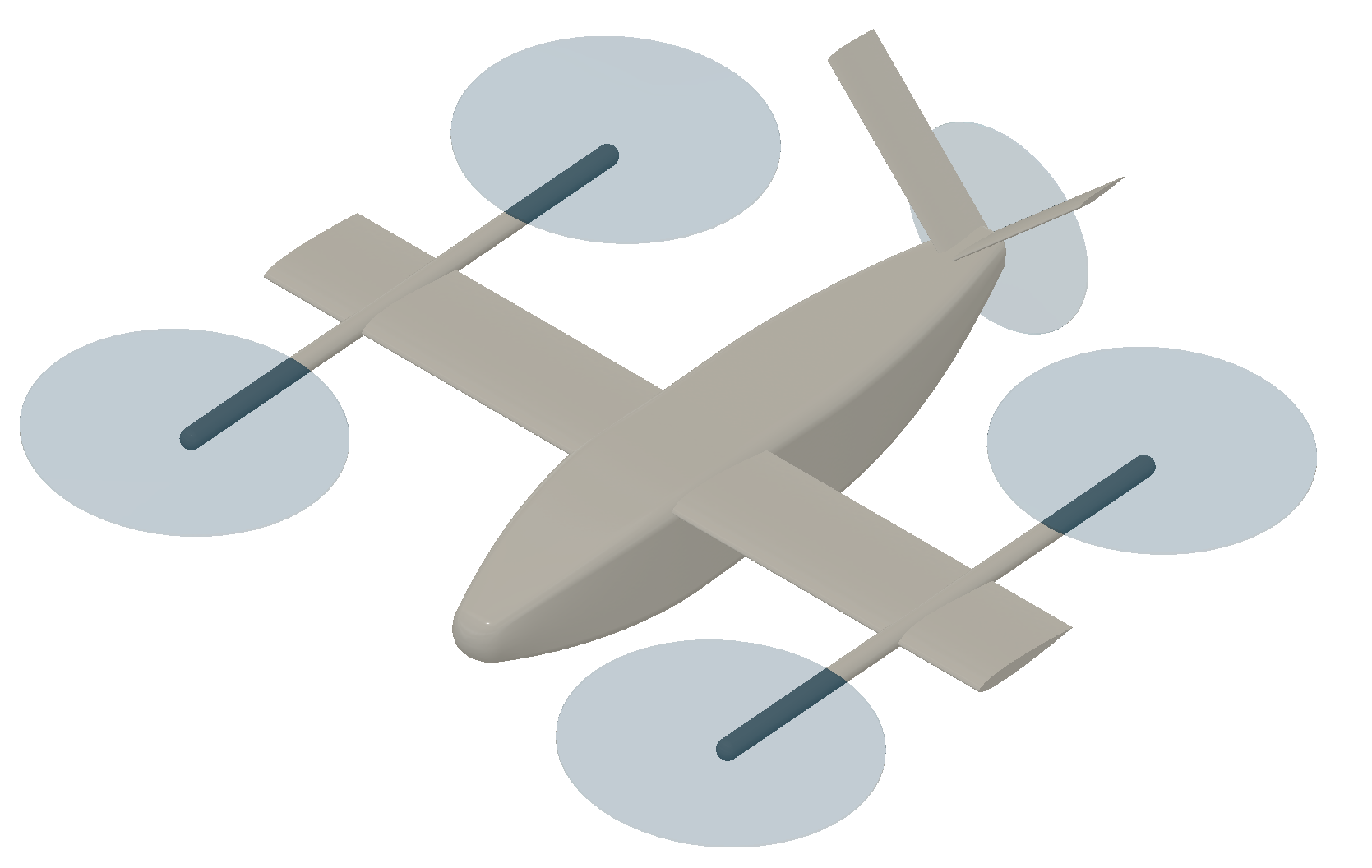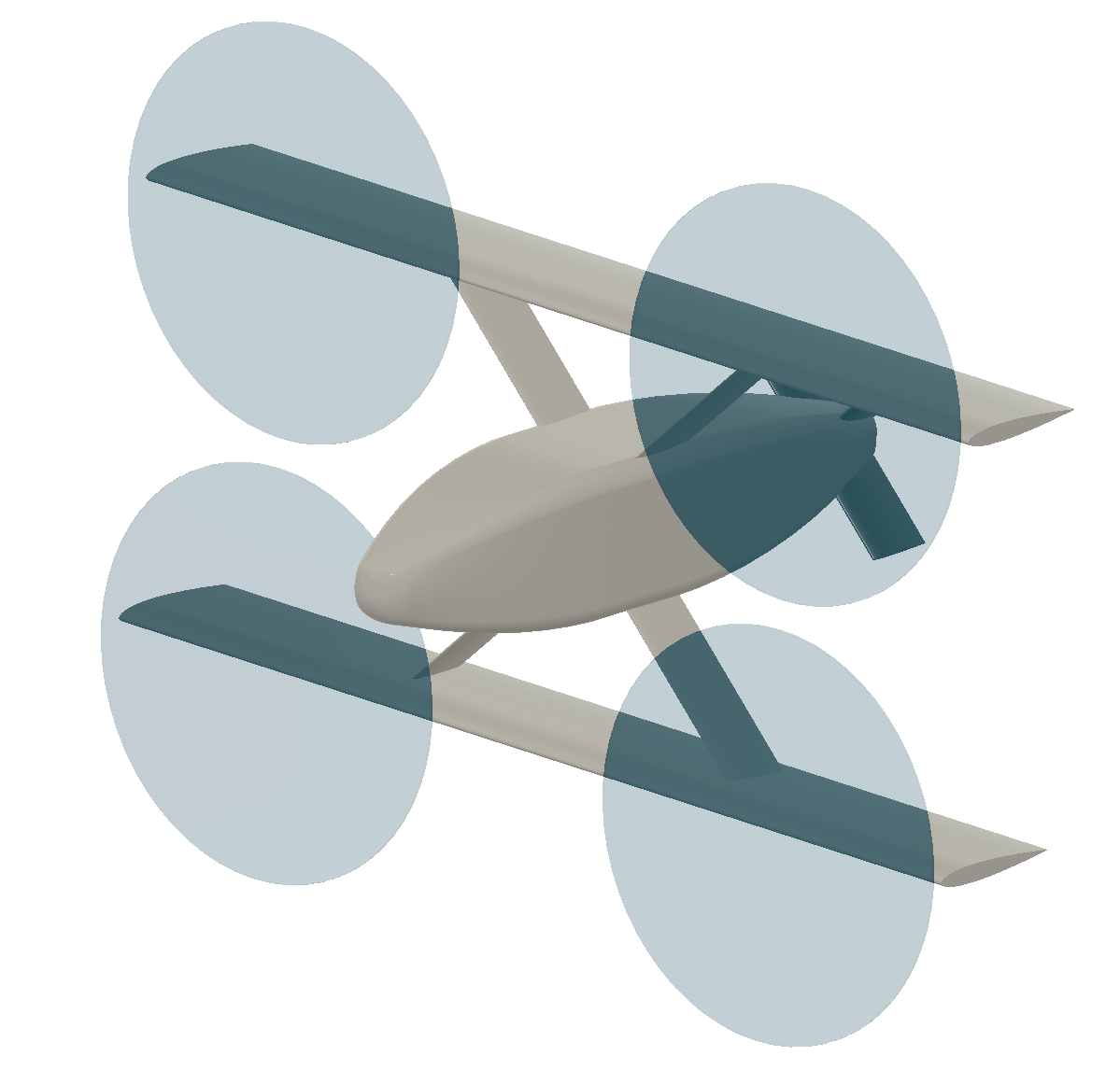UAV Design and Trajectory Optimization
PhD research, 2022 - 2024
Overview
We performed simultaneous optimization of VTOL UAV’s conceptual design and its takeoff/transition trajectory. Conceptual design variables included sizing parameters (takeoff weight, battery weight, motor sizing, wing area, etc.), cruise speed, rotor disk area, and rotor geometry.
We studied two VTOL configurations - lift+cruise and tailsitter - for lightweight package delivery applications.


Models and implementation
For aircraft dynamics, we used a two degree-of-freedom model along with empirical post-stall aerodynamic model for wing and blade element momentum (BEM) analysis for rotors. UAV sizing were done mostly by simple empirical models.
We used OpenMDAO as an underlying framework for this MDO problem. We integrated Dymos for trajectory optimization and CCBlade for BEM analysis into the design-trajectory optimization model.
Results: Lift+cruise configuration
The following figures show the optimized UAV designs and takeoff/transition trajectories for the lift+cruise configuration.

Simultaneous optimization achieved a 4.8% energy reduction compared to iterative sequential optimization and a 7.4% reduction from uncoupled optimization. Simultaneous optimization captured system-level trade-offs between component (especially motor) sizing and takeoff/transition energy consumption. This contributed to improving the design and energy efficiency, which could not be achieved by uncoupled or sequential optimization approaches.
Results: Tailsitter configuration
Here are the results for the tailsitter configuration.

For tailsitter, both simultaneous optimization and iterative sequential optimization reduced the energy consumption by 29% compared to uncoupled optimization. This is because we can make accurate estimation of the takeoff/transition energy requirement, which drives the battery sizing, by incorporating takeoff trajectory optimization into the conceptual design process.
Relevant publications
- Shugo Kaneko and Joaquim R. R. A. Martins, Simultaneous Optimization of Design and Takeoff Trajectory for an eVTOL Aircraft, Aerospace Science and Technology, 2024.
- Shugo Kaneko and Joaquim R. R. A. Martins, Simultaneous Optimization of Conceptual Design and Takeoff Trajectory of a Lift-Plus-Cruise UAV, 10th Autonomous VTOL Technical Meeting, 2023.



